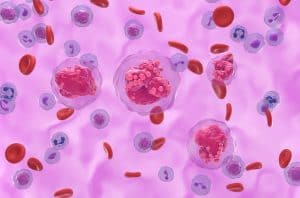
Phoenix from the flames for Lilly cancer drug
pharmafile | August 14, 2013 | News story | Research and Development, Sales and Marketing | NSCLC, lilly, lung cancer, necitumumab
A drug that once looked doomed to fail has shocked analysts by helping late-stage lung cancer patients live longer.
Necitumumab met its primary endpoint in its latest Phase III trial by increasing overall survival in stage IV metastatic, non-small cell lung cancer (NSCLC) with an EGFR mutation.
The treatment was being used in combination with Lilly’s Gemzar and cisplatin as a first line treatment, and was compared to chemotherapy alone.
But this success comes several years after a late-stage trial of necitumumab was stopped because of concerns about its potential to cause blood clots.
In that trial it was being tested in combination with Lilly’s chemotherapy lung cancer drug Alimta alongside Cisplatin. Analysts had written the drug off, but it seems the latest data have turned its fortunes around.
‘Expectations were close to zero’ for necitumumab, said J.P.Morgan analyst Chris Schott. But given the trial’s success, Schott told Reuters he now believes it could generate peak annual sales greater than $1 billion if the drug is approved and continues to show positive data.
Late-stage lung cancer is notoriously difficult to treat and there are few drugs available that are able to increase overall survival, the golden standard in oncology trials, which explains why expectations are now high for the treatment.
“We are pleased with these data which represent a potential advance in treatment for patients with squamous non-small cell lung cancer, which is a difficult cancer to treat,” said Richard Gaynor, VP of product development and medical affairs for Lilly Oncology.
Necitumumab represents a new generation of cancer drugs that are grown in living cells and target specific gene mutations linked to cancer. Gaynor added: “If approved, necitumumab could be the first biologic therapy indicated to treat patients with squamous lung cancer.”
Lung cancer is the leading cause of cancer death in the US and most other countries and NSCLC is much more common than other types of lung cancer, which accounts for 85% of all lung cancer cases.
Patients with squamous cell carcinoma represent about 30% of all patients affected by NSCLC – the number of cases is thought to be connected to rates of smoking in the world, although Asian women are genetically more likely to have the EGFR mutation that leads to lung cancer, even if they do not smoke.
Lilly said in a statement that it plans to present results from this study at a scientific meeting in 2014, and currently anticipates submitting to regulatory authorities before the end of next year.
Ben Adams
Related Content

CHMP recommends AstraZeneca’s Tagrisso for approval for lung cancer treatment
AstraZeneca has announced that Tagrisso (osimertinib) alongside pemetrexed and platinum-based chemotherapy, has been recommended for …

AstraZeneca shares results from phase 3 TROPION-Lung01 trial
AstraZeneca has announced results from the phase 3 TROPION-Lung01 trial of AstraZeneca and Daiichi Sankyo’s …

FDA approves Amgen’s Imdelltra for extensive-stage small cell lung cancer
Amgen has announced that the US Food and Drug Administration (FDA) has approved Imdelltra (tarlatamab-dlle) …








